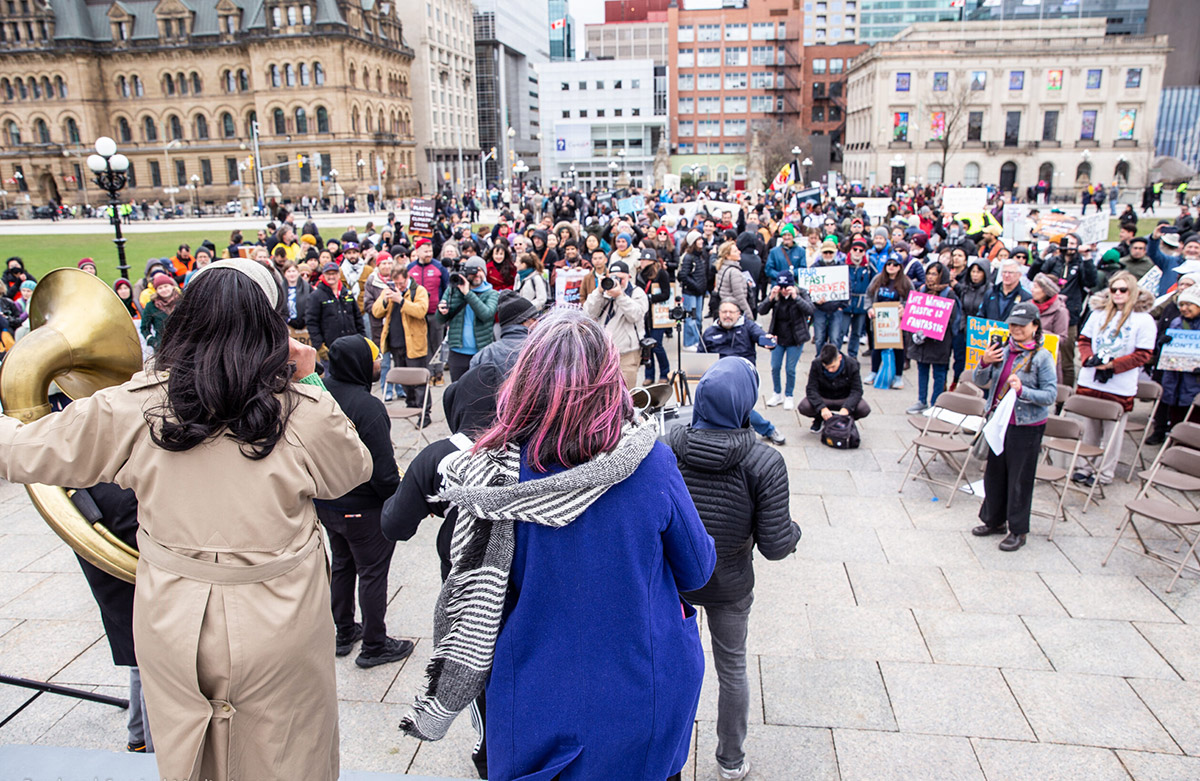Bangkok, Thailand | Yesterday, 133 civil society organizations worldwide called on the leadership of the Intergovernmental Negotiating Committee (INC) working on a legally binding instrument to end plastic pollution, to provide greater transparency and access to civil society organizations and rightsholder ahead of the upcoming Ad-hoc Intersessional Open-ended Working Groups that will take meet in Bangkok, Thailand, in August.
At the conclusion of the fourth session of the Intergovernmental Negotiating Committee, Member States agreed to hold two expert working groups to further the work between the INCs. While the work session is open for Member States, each working group can include up to twelve ‘experts’ that must be nominated and selected in advance.
In a letter addressed to the INC Secretary, Jyoti Mathur-Filipp, the INC Chair, Ambassador Luis Vayas Valdivieso, and the members of the Bureau, the groups raised concerns about the restrictions on the participation of observers and the lack of transparency regarding the selection of the technical experts–who must be unequivocally free from conflicts of interest–who will be attending the upcoming meeting. Additionally, it calls for an open application process, allowing accredited observer organizations to register at least one representative.
From the letter:
“Many organizations have been involved in the process of negotiating a legally binding instrument to end plastic pollution, including in the marine environment, from the beginning. These organizations have immense expertise on the issues being discussed and have dedicated that expertise, as well as time and financial resources, to participating in the INC process (...).”
“Observer participation offers an essential opportunity to civil society and rights holders, including impacted fenceline communities, Indigenous Peoples, women, youth, representatives of grassroots communities, and stakeholders like scientists, consumers, faith groups, health and environmental experts, and policy experts to share their expertise and experience and present practical, equitable, and well-founded solutions based on their firsthand experiences and expertise which should feed into a strong treaty.”
The request from civil society groups for fair and meaningful participation comes as more than 170 countries are preparing to participate in the intersessional meeting in August. With the fifth and last scheduled round of negotiations to be held in Busan, South Korea, a lot is at stake to create a successful Global Plastics Treaty that can end plastic pollution.
Penchom Saetang, Director, Ecological Alert and Recovery-Thailand (EARTH-Thailand) said:
“Limiting meetings exclusively to representatives from government agencies without allowing participation from civil society hinders the exchange of ideas and perspectives, which is detrimental to all parties involved. The Global Plastic Treaty is an issue that extensively concerns people worldwide and for the public benefit. Therefore, restricting the involvement of civil society in this matter does not lead to positive outcomes and reflects narrow-minded thinking by the Secretariat.”
Cecilia Bianco - Latin American and Caribbean Network for the Reduction of Plastic Production with Globally Binding Targets, said:
"We are very concerned that due to the measures taken by the Secretariat, a large number of observers will be left out of the inter-sessional meetings where fundamental issues such as financing, plastic products, and chemical substances of concern will be discussed. It is clear that when it is considered that observers can join delegations, there is a lack of knowledge of the legislation of many countries, where only ministry and foreign ministry staff can be part of a delegation. With that, there is a possibility of an imbalance in the representation of civil society, in the knowledge that is contributed by the communities most impacted at each stage of the life cycle of plastics. Also, the Secretariat has not made known the criteria for deciding the selection of experts, and these criteria should include a policy that prevents and avoids conflict of interest."
Dharmesh Shah, Senior Consulting Campaigner (Plastics Treaty), Center for International Environmental Law / Turtle Island, said:
“Observers play an essential role in negotiations — they provide lived experience, scientific and legal expertise, and critical technical knowledge. An opaque nomination process with only 12 experts per working group betrays the purported inclusive nature of these negotiations and gives cover to polluters who do not need to disclose their affiliation.”
###
Notes to the editor
Photos and videos from the fourth round of treaty negotiations in Ottawa (April, 2024) are available here.
Global Press Contacts:
- Caro Gonzalez | Caro@breakfreefromplastic.org
- news@breakfreefromplastic.org
- Cate Bonacini | press@ciel.org
Regional Press Contacts:
- United States and Canada: Brett Nadrich | Brett@breakfreefromplastic.org
- Africa: Carissa Marnce | Carissa@no-burn.org
- South East Asia: Eah Antonio | Eah@breakfreefromplastic.org
- South Asia: Devayani Khare | devayani@breakfreefromplastic.org
- Europe: Bethany Spendlove Keeley | Bethany@breakfreefromplastic.org
- Latin America: Camila Aguilera | Camila@no-burn.org




